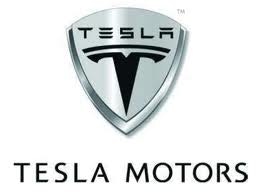
Readers can view Longboard’s presentation for themselves here. While I wouldn’t recommend shorting Tesla Motors Inc (NASDAQ:TSLA) stock (given its absurd short interest), I find Longboard’s argument to be weak and full of hyperbole.
Longboard’s bull case
To offer a brief summary of Longboard’s bull case:
1) Tesla Motors Inc (NASDAQ:TSLA) has a powerful consumer brand comparable to that of Apple Inc. (NASDAQ:AAPL)’s
2) Short sellers are basing their bearish views on political beliefs, not fundamentals
3) Tesla’s shares are far too heavily shorted
4) Tesla will be the next Apple and/or Google Inc (NASDAQ:GOOG), and Longboard implies that its shareholders will be as wealthy as Rich Uncle Pennybags from the Monopoly board game (I’m not joking — see slide 10)
5) Elon Musk is a genius
Emotional appeals to Apple, Google
The comparisons to Apple Inc. (NASDAQ:AAPL) and Google are woven throughout the presentation, but are largely without merit. While it’s true that both Apple and Google Inc (NASDAQ:GOOG) have been terrific growth stories over the last 10 years (and Tesla Motors Inc (NASDAQ:TSLA) could follow in their footsteps) tying Tesla Motors Inc (NASDAQ:TSLA) to the two tech giants is completely arbitrary.
Certainly, both Google Inc (NASDAQ:GOOG) and Apple Inc. (NASDAQ:AAPL) have dominated their respective markets, but there are plenty of companies that have done just that — Microsoft Corporation (NASDAQ:MSFT) with PC operating systems, McDonald’s Corporation (NYSE:MCD) with fast food. Likewise, Apple’s brand power is incredible — but so is The Coca-Cola Company (NYSE:KO)’s.
But The Coca-Cola Company (NYSE:KO), Microsoft Corporation (NASDAQ:MSFT), and McDonald’s Corporation (NYSE:MCD) don’t trigger the same kind of emotional responses as Apple or Google — and thus the comparison to Tesla.
Is Musk a genius?
Longboard cites Elon Musk’s quote about a “tsunami of hurt” coming for the company’s short sellers as a positive. But I would view this as a negative.
As I’ve written before, the last time a CEO bashed the short sellers — Netflix, Inc. (NASDAQ:NFLX)’s Reed Hastings — things didn’t work out too well for the CEO.
In a blog post, Hastings responded to criticism from Whitney Tilson, who had bet against Netflix, Inc. (NASDAQ:NFLX)’s stock and made his reasoning public. Hastings urged Tilson to “cover his short.” Unfortunately for Tilson, he did. Shares peaked near $300 before ultimately collapsing well over 70% in a span of roughly five months.
Definitely a short squeeze candidate
The one part of the presentation that I fully agree with is the short interest. With well over 40% of Tesla’s shares having been sold short, bears could be setting themselves up for a massive short squeeze.
This phenomenon has played out in shares of Netflix, Inc. (NASDAQ:NFLX) in recent months. Year-to-date, Netflix shares are up a staggering 132%. Most of that impressive gain followed just after the release of two earnings reports.
In both reports, the streaming video giant beat expectations, and the mass of short sellers that had bet against Netflix were forced to cover.
But short squeezes are a short-term phenomenon — not a long-term driver of share price. Stocks that have rallied on the basis of short squeezes can have equally as impressive moves downward if the fundamentals aren’t there to support the business.
Take First Solar, Inc. (NASDAQ:FSLR). Over the last five years, shares have largely moved in one direction: downward. From May 2, 2008, shares have declined by over 84%. A number of short sellers had foreseen the stock’s decline, and bet accordingly.
This high short interest resulted in some powerful rallies along the way. Shares went from about $100 in mid-2010 to nearly $170 in February 2011. More recently, shares of First Solar have rallied from a low of about $12 to well over $45.

As the stock remains heavily shorted, this recent rally, too, could simply be a short squeeze. First Solar, Inc. (NASDAQ:FSLR)’s short float percentage is less than Tesla’s (only about 30% of First Solar, Inc. (NASDAQ:FSLR)’s shares have been bet against), but is still impressively high. Once enough shorts cover, the stock could snap back.
Risk and return
Tesla, as an innovative growth company, could certainly offer ridiculous returns to patient investors — but only if everything goes according to plan. In the future, battery-powered electric vehicles could become the dominant type of car — and if that’s the case, Tesla would obviously be poised to benefit big.
But there’s no guarantee that will happen, or even if that’s the dominant trend. The world’s best selling cars are the Ford Motor Company (NYSE:F) Focus and Toyota Corolla — compact sedans that cost around $15,000. It will be a long time before a battery-powered car can match the value offered by either of those models.
While the traditional internal combustion engine powered by gasoline appears to be in its twilight years, the future may prove to be based on something besides electric — perhaps natural gas?
The recent explosion in natural gas production has brought prices down to absurd levels. Once US-pioneered fracking techniques become more widely used across the globe, the world could find itself drowning in natural gas.
That could mean a future where natural gas-powered vehicles — not battery-powered ones — are dominant.
At any rate, Tesla Motors Inc (NASDAQ:TSLA) remains a high-risk stock at this time, and is certainly not guaranteed to be the next Apple or Google. For short-term traders, playing a Tesla short squeeze might prove profitable. But over the long term, Tesla’s viability remains a gamble.
The article Fund Thinks Tesla Shares Will Rally 400% in Next 5 Years originally appeared on Fool.com and is written by Salvatore “Sam” Mattera.
Copyright © 1995 – 2013 The Motley Fool, LLC. All rights reserved. The Motley Fool has a disclosure policy.

